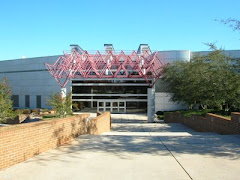What
will you find when you Search for Khaled Hosseini’s new book, And the Mountains Echoed, in a library
catalog? Chances are you will retrieve
quite a number of hits about ‘mountains’ and ‘echo’ but not the novel itself. Why
is that? The book exists. The terms you entered are valid. Why can’t you find
it? The problem is related to the words ‘and’ and ‘the’, which unfortunately
appear at the beginning of the title. Those words are called ‘stop words’. Stop
words are very common words that normally add little meaning to the subject
content of the document being indexed. Most of the stop words are there to make
a sentence grammatically correct. If you ignore them, a sentence will still
make sense, somewhat. However, the problem is that search engines are ignoring
them too.
Most
search engines do not index stop words in order to save disk space, to make
searching more efficient, and to reduce result pollution. Some search engines
might replace them with what is called a marker.
Consider this sentence:
It
is an unforgettable novel about finding a lost piece of yourself in someone
else.
There are 7 stop words in this sentence; it, is, an, about, a, of, in. The sentence would be stored like this:
There are 7 stop words in this sentence; it, is, an, about, a, of, in. The sentence would be stored like this:
***
unforgettable novel * finding * lost piece * yourself * someone else.
To
speed up the search process, search engines do not search for certain terms in
order to save time. Consider the title And
the Mountains Echoed. A search
engine will look for ‘mountains’ and ‘echoed’. To save time, it will most
likely exclude terms that it considers too common, such as ‘and’ and ‘the’.
So
what should a researcher do short of asking every author in the world not to
use stop words in the titles of their books? One way to avoid this problem is by
entering search phrases as search engines are programmed to understand. You can accomplish this by using markers
where stop words appear. Instead of And the Mountains Echoed, enter ** Mountains Echoed. Or skip certain words
entirely; Dark and Deadly Pool instead
of The Dark and Deadly Pool. You can
also put the phrase in quotation marks for the search engine to search the
exact phrase.
Fortunately,
database publishers understand this problem, and they are doing something about
it. Some add extra script to let search engines be aware of certain terms. Some
create a stop list, which is a list of stop words, and apply it to the content
indexed in the database. However, this problem is still looming and will not go
away entirely. The other day Mel, our cataloger, could not find a record for And the Mountains Echoed in the library
catalog. His search turned into a
definite stop word dilemma!
.jpg)



